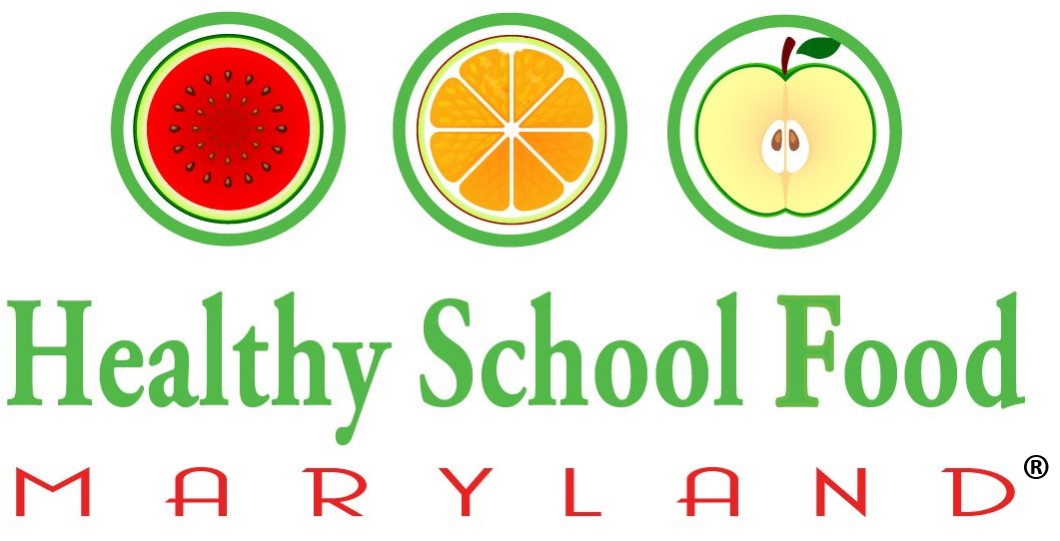
|
||||||||||||||||
|
Timeline of Prior Food Advocacy Work in MCPS 
1989/1990 A group of MCPS parents, encouraged by the work of Kaiser-Permanente head of allergy, Ben Feingold, M.D., press for the removal of additives in MCPS school food. 2004 Congress passes the Child Nutrition and WIC Reauthorization Act of 2004 requiring (among other things) that all school systems participating in the School Breakfast Program or School Lunch Program have a Wellness Policy and a Wellness Committee in place for the start of the 2006-2007 school year. 2006 Carrie Witkop and Aviva Goldfarb of the Six O'Clock Scramble begin food advocacy work in MCPS, working through the North Chevy Chase PTA. Their advocacy work continues through 2011 and contributes to most of the victories described below. In March and April of 2006, the MCPS Board of Education issues a Wellness Policy and Regulation (which has since been updated). In December of 2006, Aviva testifies before the Board of Education to ask for healthier lunch food. 2007 MCPS wellness committee disbands. In April of 2007, a group of around 100 parents organized by Timothy Male (current Takoma Park City Council Member) sends a letter to the Board of Education asking for calorie counts on the menus; revising the school menus to better reflect the USDA food pyramid and reduce fat, sugar and carbohydrates; re-form the wellness committee and include parent representation; create county goals for purchasing and serving local produce; expand efforts to purchase ingredients grown organically or with low pesticide and herbicide inputs; reduce or eliminate the use of foods exposed to potentially harmful additives and processes, such as bovine growth hormone and trans-fats; hire or re-task Nutrition Services staff so that sufficient personnel are available in each school to prepare fresh produce; create school gardens and incorporate their produce in the lunch menu; and ensure children have 30 minutes to sit and eat their lunch followed by at least 30 minutes of recess. In February, 2007, Carrie and Aviva, through the PTAs at North Chevy Chase Elementary School and Rosemary Hills Primary School, write the Board of Education asking for fruit served to children to be cut up; more Maryland produce; the removal of corn syrup in applesauce and canned fruit; reduction in the use of processed meat; that lunch be homemade at the food services facility and the limitation of chocolate milk. They also question the environmental impact of the use of Styrofoam trays and express concern over fiber content, sodium nitrites, fat and portion sizes. In March, 2007, Carrie and Aviva write the Board of Education asking for the removal of gummies as an a la carte offering to elementary school children. Also in April, 2007, another group of 96 parents, organized by Carrie and Aviva write a letter to the Board of Education expressing their concern about unhealthy a la carte options, asking for more information on the budget and the portion of the budget provided by a la carte, questioning the mission of Food and Nutrition Services, asking for local produce served in child-friendly servings, the limitation of preservatives and elimination of high fructose corn syrup in canned foods and the formation of a task force to address the community's concerns. In 2007 sometime, Diane Bartz asks to have the strawberry milk removed from Takoma Park Elementary School, due to her son consuming multiple strawberry milks from the share table. A snap poll of parents is conducted by the administration. By combining the votes for "indifferent" with the votes for "against removing" the principal decides that the parents are against removing it, despite a larger proportion of parents being for removing it than against, and it stays on the menu. In September, 2007, experts and parents call for Maryland junk food lunches to be scrapped. Even though healthier food options are more readily available, the selection on main menus and the presence of vending machines and other a la carte programs pose significant health risks. Senator Tom Harkin proposes a national overhaul of outdated guidelines for vending machines called the Child Nutrition Promotion and School Lunch Protection Act which would put vending machine contracts under the same nutritional standards facing school lunch programs. State Delegate Jane Lawton and Senator Jamie Raskin introduce a farm to school bill, which has to be pulled because of an archaic USDA regulation prohibiting a preference for local produce. Sadly, Jane Lawton dies unexpectedly in November of 2007. 2008 In January of 2008, at the request of Montgomery County Council Member George Leventhal, the Center for Science in the Public Interest publishes a survey of junk food marketing in MCPS . In March 2008, through Carrie and Aviva's advocacy, as well as the support of Senator Jamie Raskin and Delegate Jeff Waldstreicher, the Jane Lawton Farm to School Bill passes, providing for one week of local produce in Maryland Schools with an appropriate curriculum for the children (Locally Grown Food lunch week) and the requirement that schools and farmers communicate with one another. In April 2008, MCCPTA does a survey of parents' attitudes toward school lunches. 91% want to see changes in food and drink that is offered in school lunches, 65% want changes to a la carte foods and 48% want changes in the food offered in vending machines. In May 2008, through the intercession of Congressman Van Hollen, the US Farm bill passes with a provision allowing local produce into school lunches (removing the obstacle to passing the Farm to School bill previously). In September 2008, the North Chevy Chase PTA writes parents announcing some positive changes to MCPS food: the introduction of more whole grains, investigation by MCPS of purchasing pre-cut fruit, a commitment to purchasing less canned fruit packed in corn syrup, the applesauce now being naturally sweetened, some healthier a la carte options including fresh fruits and vegetables at their school, as well as the removal of artificially sweetened and flavored water, and the replacement of gummies with low-fat brownie bites made locally, with a limit of 2 per child. 2009 In May 2009, Carrie and Aviva request a pilot offering only a la carte items that are sold as part of the meal at North Chevy Chase Elementary School. In July 2009, the State Department of Agriculture holds the Jane Lawton Farm to School Conference, where school lunch programs across the country share great ideas that they have implemented. In October 2009, Tony Geraci (AKA Cafeteria Man) from Baltimore Nutrition Services, testifies before a Congressional Subcommittee on Healthy Communities. Other amazing ideas are shared regarding USDA commodities provided by local farmers. 2010 In April, Charlotte Schoeneman and AJ Campbell, who were leading the Food & Nutrition Committee on the Takoma Park Elementary School PTA, create a Yahoo group of people interested in improving the food in MCPS. Over the course of a couple years, their work contributes to the reduction in sugar in government subsidized canned fruit, the reduction in the sugar in the flavored milks (from 26/27 grams to 21/22 grams), the Takoma Park Elementary School cafeteria cutting up the whole fruits so that the kids (the majority of whom were missing teeth) could eat them and the mapping out of the number of calories, fat and sodium in many of the cafeteria meals. They also obtain donations of fruit trees and provide after school programs to teach kids about healthy food (both of which are subsequently ended by the principal). In December of 2010, Congress passes the Healthy, Hunger-Free Kids Act (HHFKA) reauthorizing federal child nutrition programs. Changes to school lunches include: more fruits and vegetables, minimum/maximum calorie ranges; free water in the cafeteria and more. 2011 In January 2011, Charlotte Schoeneman and Gordon Clark of Montgomery Victory Gardens are quoted in a Washington Post article regarding the MCPS policy prohibiting school gardens. This policy was subsequently changed and school gardens are now allowed. In April 2011, thanks to the work of Delegate Eric Luedtke and fellow co-sponsors Delegates Barkley, Carr, Frick, Kaiser, S. Robinson, Rosenberg and Waldstreicher, the Jane Lawton Farm-to-School act was amended to require that on or before January 1 of each year, schools report the amount and types of Maryland farm products that they are using (the first data will only be available in September of 2013). In July 2011, through the efforts of Montgomery County Council Members George Leventhal and Valerie Ervin influenced by the work of Carrie and Aviva, the Office of Legislative Oversight produces the "Food in Montgomery County Public Schools" report for the Montgomery County Council. State Senator Jamie Raskin and Carrie and Aviva have a meeting with Michael Birkmeir (who is in charge of USDA commodities purchases for Maryland public schools) to discuss concerns regarding processed chicken, sweetened canned commodities and other concerns. Mr. Birkmeir agrees to help get high fructose corn syrup out of Maryland school commodities. Carrie attends the premier of "School Lunch" with a panel discussion with the Department of Education and the USDA. She asks the USDA school lunch director about sweetened commodities in front of about 200 people, extracting a promise to end corn syrup in canned commodities. Carrie and Aviva are successful in getting the 80,000 polystyrene trays used in MCPS daily reduced to half their size. 2012 In August of 2012 MCPS first implements the HHFKA bringing more fruits and vegetables into school lunches. In October of 2012, Healthy School Food Maryland is founded. |
|
||||||||||||||



